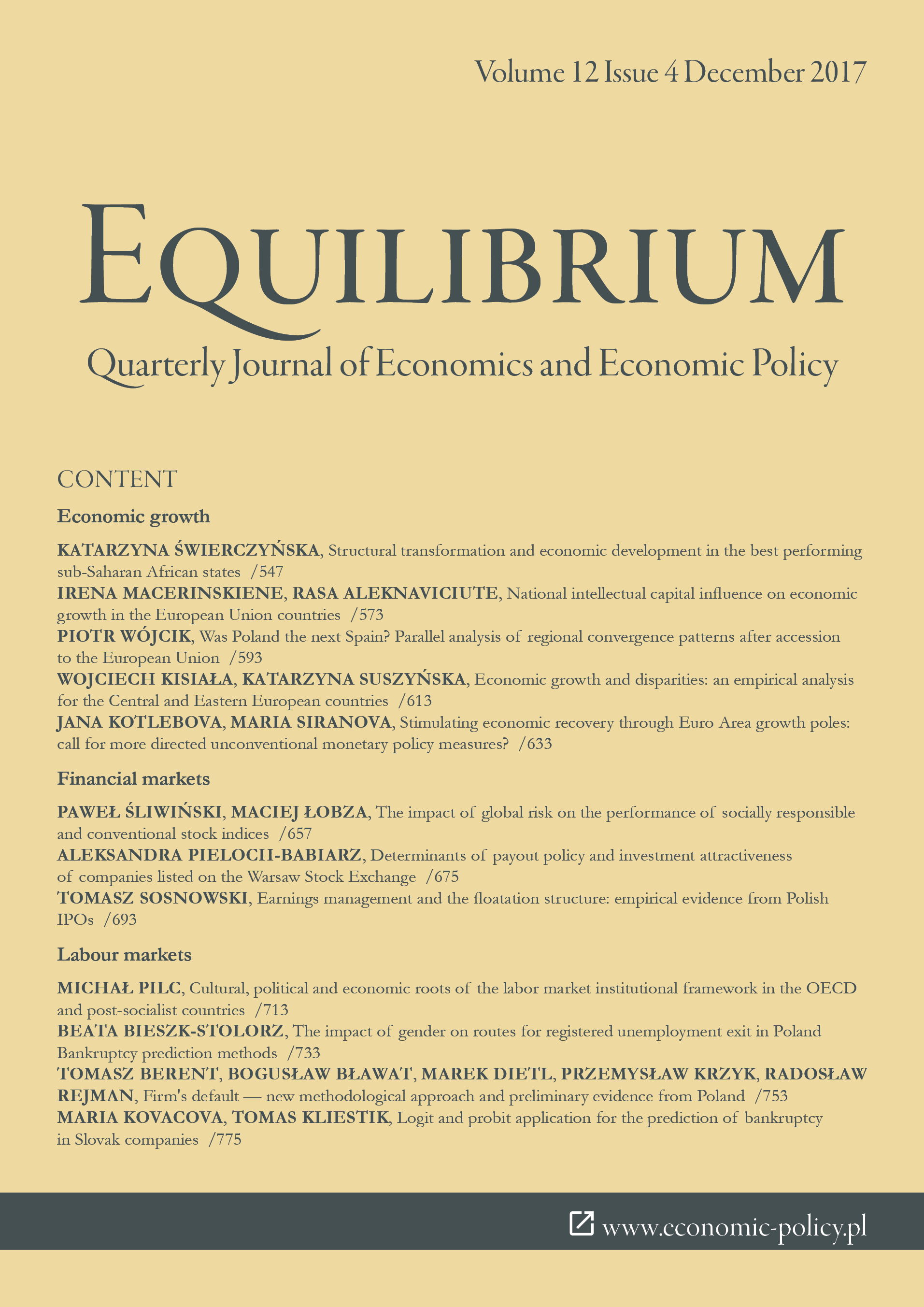The impact of gender on routes for registered unemployment exit in Poland
The impact of gender on routes for registered unemployment exit in Poland
Author(s): Beata Bieszk-StolorzSubject(s): Economy, Gender Studies, Labor relations
Published by: Instytut Badań Gospodarczych
Keywords: competing risk; cumulative incidence function; the Lunn-McNeil model; unemployment; gender;
Summary/Abstract: Numerous studies show that men’s and women’s situation on the labour market differs. Women’s disadvantageous position on the labour market in Poland has been confirmed by statistical data (Kobiety…, 2016). The most common reasons for deregistration from the employment office are finding a job and deleting from the records due to an unjustified refusal to accept an offer by an unemployed person. Additionally, registered unemployed people can for example: retire, apply for invalidity pension, receive early retirement benefits or start full time studies. The above causes are regarded as competing risks of various kinds. Purpose of the article: The purpose of this article is to assess the effect of the unemployed individual’s gender on the probability and intensity of de-registering from the labour office lists due to finding a job, de-registering or other causes. Methods: In the study the survival analysis methods were used. The assessment of the probability of de-registration due to a specific cause was made by means of the cumulative incidence function. The intensity of de-registration was tested with the Lunn-McNeil model. Differences in the effect of gender on the de-registration possibility were tested with the use of Gray’s test. The study was based on individual data of people registered by the Labour Office in Szczecin. Findings & Value added: Among women, job-finding was the most common cause of deregistration, followed by the removal from the register. In the case of men the order was reversed, the most probable de-registration cause was the removal, followed by job-finding. The remaining causes were of marginal significance, both for men and women. Women took up a job more intensively than men and were less intensively removed from the register. The differences between males and females in the intensities of de-registering due to the remaining causes were not statistically relevant.
Journal: Equilibrium. Quarterly Journal of Economics and Economic Policy
- Issue Year: 12/2017
- Issue No: 4
- Page Range: 733-749
- Page Count: 17
- Language: English

